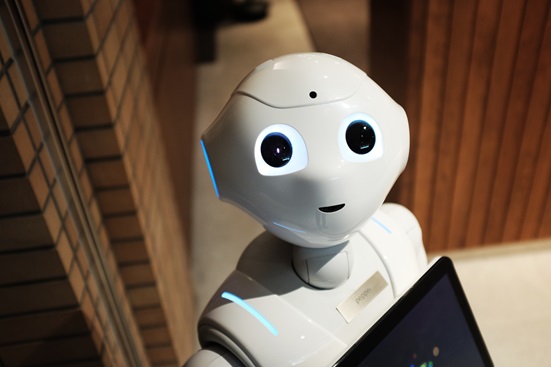Prospering in the artificial intelligence world: 2018 Samuel Alexander Lecture

The term ‘artificial intelligence’ (AI) was coined at an academic conference in 1956. For a young Alan Finkel, growing up in Melbourne in the 1960s, it was a core module in an extensive sci-fi curriculum – one that his teachers didn’t always approve. Today, as Australia’s Chief Scientist, Dr Finkel recalls the gap between the possibilities imagined on those pages, and the technologies of the world he knew.
Ahead of the 2018 Wesley College Samuel Alexander Lecture, to be held on 13 August in Adamson Hall at the St Kilda Road Campus, he marvels at just how far we’ve come.
‘I am proud to be a creation of the 20th century: born in it, raised in it,’ Dr Finkel said. ‘What was I taught in school about computers? Practically nothing.’
And fair enough. Computers at the time were in their infancy, so rare that they were still referred to as ‘electronic computers’ – to distinguish them from the other computers, ‘persons whose occupation it is to make arithmetical calculations’. The pride of Australian computing, a machine known as CSIRAC, was so large that when the time came to move it from Sydney to Melbourne, it travelled down the Hume Highway in multiple trucks. It was, for its time, a technological marvel. Yet it was far removed from a thinking, learning, reasoning, human brain.
‘But that’s the power of imagination and ingenuity,’ said Dr Finkel.
‘I came from a generation that grew up with only the shadow of an idea, that still reached out into that imagined AI future, and grasped at the fibres of possibility.
‘Now, as an immigrant in the 21st century, I feel an obligation to the native-born citizens of this new era that we helped to bring about.
‘I see our children and grandchildren growing up alongside an entirely new society of intelligent machines, their characters moulded by their AI-curated news feeds, virtual assistants, and so much more.
‘They no longer marvel at the things that were once, to me, close to impossible.
‘The big question in my mind is simple: can we raise our children and our technologies to play nice, and get along?’
No easy answers
Dr Finkel cautions that opinions on AI are sharply divided.
‘On the one hand, it’s exhilarating: AI will deliver to our children the sort of products and services that we think of today as luxuries. Every one of us will have the equivalent of a personal driver, doctor, property caretaker, meal-planner, shopper and architect. And in many circumstances, they’ll be better than humans: more precise, always available, and uncomplaining about the sort of jobs that we humans find boring or unpleasant.
‘Of course, on the other hand, I’m sure I’m not the only person who’s observed that almost every movie or novel involving humans and AI seems to end very badly. It doesn’t take the imagination of Stanley Kubrick to worry that children who grow up with personal AI slaves might not be the better for it. It certainly doesn’t take the dark vision of George Orwell to worry about a world where AI scans our faces as we walk down a public street, or ends up deployed as a weapon in war.
‘AI can enable the best and worst of humanity. In the tradition of Samuel Alexander, humanitarian and scholar, there is a pressing need to equip our children with the values to choose wisely.’
The Samuel Alexander Lecture honours one of Australia’s greatest scholars and one of Wesley’s most significant alumni. Samuel Alexander was a student at Wesley College in the early 1870s who, after completing his studies at the University of Melbourne and Oxford University, was appointed Professor of Philosophy at Manchester University. He subsequently became one of the 20th century’s most significant philosophers.
Dr Alan Finkel delivered the 2018 Wesley College Samuel Alexander Lecture, in Adamson Hall at the St Kilda Road Campus on 13 August, 6–7.30 pm.
